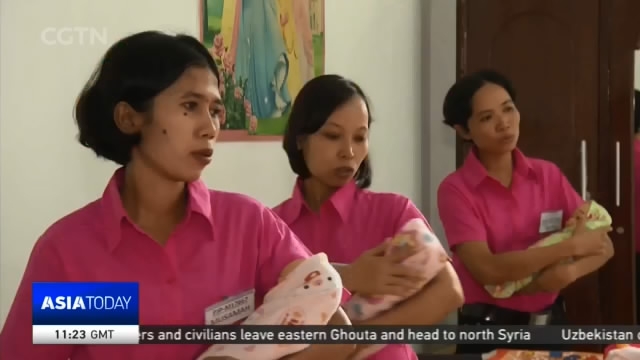
19:36, 27-Mar-2018
Migrant Labor Abuse: Indonesia to implement strict regulations to migrant workers abroad

Similar cases have also been reported in Indonesia. President Joko Widodo and various government ministries are strengthening regulations to better protect Indonesian migrant workers abroad. The plan comes after the death of a 21-year-old Indonesia domestic worker in Malaysia's Penang city. Silkina Ahluwalia has more from Jakarta.
Tayem finds it difficult to let go of her traumatic memories of living as a domestic helper in Qatar. She left her village in West Java in 2011 to seek a steady income abroad. Her search led her to Qatar. She was hoping for a high-paying job with comfortable living conditions. She ended up in an abusive household instead for more than one year.
TAYEM FORMER ABUSED MIGRANT WORKER "My employers were only nice to me for one week. After that they abused me every day. I wasn't allowed to have contact with my family back home. I sustained serious injuries because they would pour hot water on me, rub salt on my wounds and beat me with a hot iron. I worked for no salary for more than one year."
Indonesia sends more than 6.5 million migrant workers abroad, mostly to Saudi Arabia, Malaysia and Hong Kong. Tayem's case put a spotlight on the issue of the lack of protection for them.
SILKINA AHLUWALIA JAKARTA, INDONESIA "Around 80 percent of them have confessed to experiencing long working hours, forced labor, violence and even human trafficking. Human rights activists are now urging the government to implement strict regulations to provide better care to migrant workers. Migrant Care is an NGO based in Jakarta with the aim of advocating the rights of domestic workers and their families. Wahyu calls this issue a crisis. Few countries in the Middle East still view slavery as common practice a cultural problem that Wahyu says needs to be addressed."
WAHYU SUSILO EXECUTIVE DIRECTOR, MIGRANT CARE "Our embassies in several countries have started to provide services to Indonesian citizens abroad. But that's not enough, our government should be more active in monitoring migrant workers abroad. They should visit these workers frequently to see what problems they face day to day. Right now, the government always take action too late."
President Joko Widodo's moratorium could provide the hope that many migrant workers have been searching for. A promise that the government is taking the necessary steps to improve protection for its people abroad. Silkina Ahluwalia, CGTN, Jakarta.

SITEMAP
Copyright © 2018 CGTN. Beijing ICP prepared NO.16065310-3
Copyright © 2018 CGTN. Beijing ICP prepared NO.16065310-3